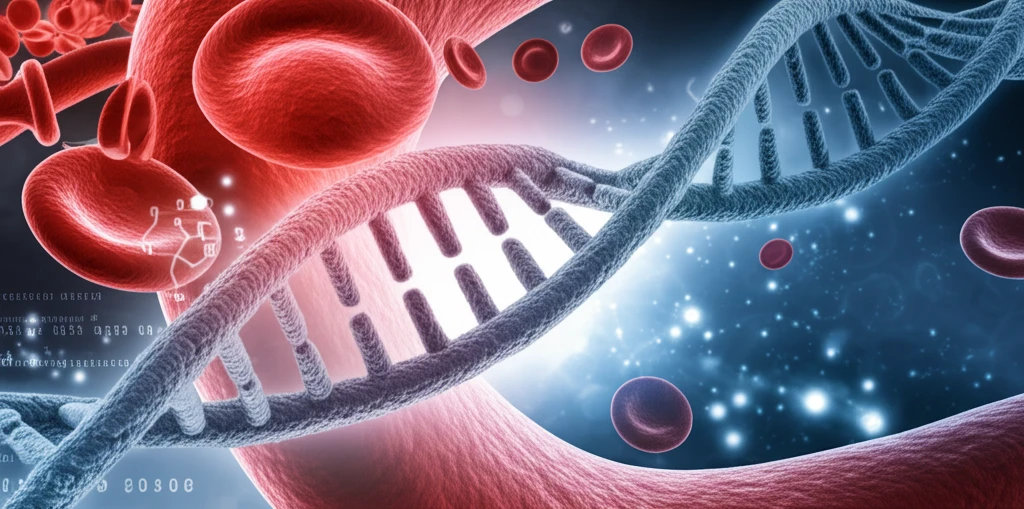
Decoding Warfarin: How Your Genes Impact Blood Thinner Dosage
"Understanding pharmacogenomics and warfarin sensitivity can improve treatment outcomes and reduce hemorrhagic risks for patients."
Warfarin, a widely prescribed anticoagulant, plays a crucial role in preventing and treating thromboembolic events like stroke and deep vein thrombosis. Its effectiveness, however, is significantly influenced by individual genetic variations, making dosage management a complex challenge. This complexity can lead to serious adverse effects, including hemorrhage, if not properly managed.
Pharmacogenomics, the study of how genes affect a person's response to drugs, offers valuable insights into warfarin's variable effects. By understanding these genetic factors, healthcare providers can tailor warfarin dosages to individual patients, improving treatment outcomes and reducing the risk of complications. This is particularly relevant for certain populations, such as those of Chinese descent, who may exhibit unique genetic profiles influencing their response to warfarin.
Recent research has focused on identifying specific genetic markers that contribute to warfarin sensitivity and resistance. These markers, primarily found in genes like CYP2C9, VKORC1, and CYP4F2, play a key role in warfarin metabolism and its mechanism of action. By integrating genetic testing into warfarin therapy, clinicians can personalize treatment strategies, optimizing the balance between preventing blood clots and minimizing bleeding risks.
The Genetic Influence on Warfarin Dosage

The CYP2C9 gene encodes an enzyme responsible for metabolizing warfarin in the liver. Genetic variations in this gene, such as the CYP2C92 and CYP2C93 alleles, can significantly reduce the enzyme's activity, leading to slower warfarin metabolism and increased drug levels in the body. Individuals with these variants often require lower warfarin doses to achieve the desired anticoagulant effect. A study focusing on Chinese patients found that the CYP2C93 genotype was associated with an increased risk of hemorrhage, highlighting the importance of genetic screening in this population.
- CYP2C9 variants affect warfarin metabolism, with 2 and 3 alleles increasing bleeding risk.
- VKORC1 -1639G>A polymorphism influences sensitivity, guiding initial dosing.
- CYP4F2 rs2108622 variant, less significant, further refines dose adjustments.
- Genetic testing allows tailored therapy, balancing clot prevention and bleeding risk.
Future Directions in Warfarin Therapy
As the field of pharmacogenomics continues to advance, the integration of genetic testing into warfarin therapy is poised to become increasingly common. Prospective studies are needed to further evaluate the clinical utility of genotype-guided warfarin dosing, particularly in diverse populations. By personalizing treatment strategies based on individual genetic profiles, healthcare providers can optimize the balance between preventing thromboembolic events and minimizing the risk of bleeding complications, ultimately improving patient outcomes and quality of life.
